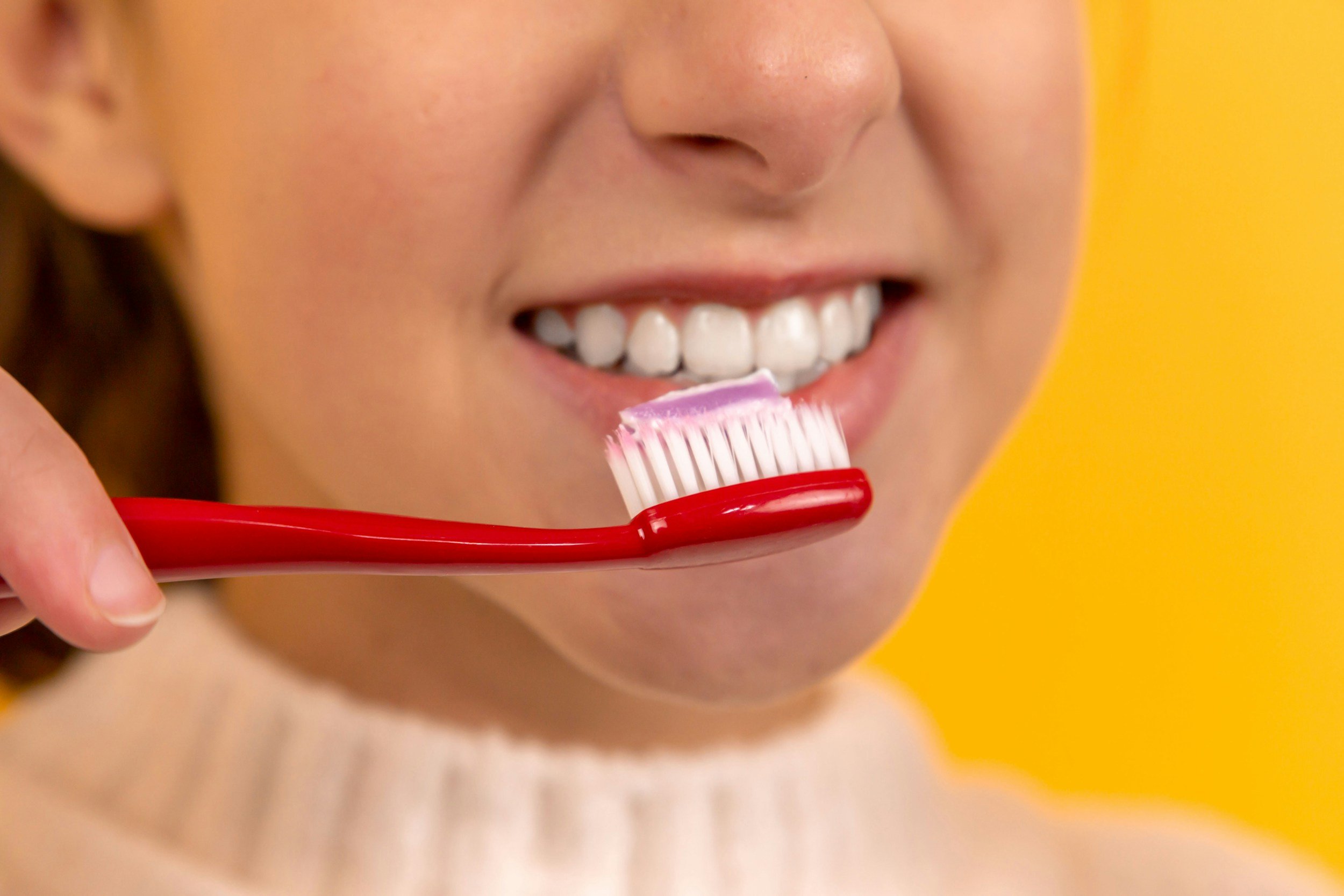What’s happening with children’s dental health in the UK?
What is the current state of children’s oral health in the UK and how can the government and families work together to improve the health of our children’s teeth?
6 minute read With UK dentistry in crisis, children’s dental health has been branded a “national disgrace” by Dr Camilla Kingdon, president of the Royal College of Paediatrics and Child Health.
But why are our children’s teeth in such bad shape? Is it difficulty accessing an NHS dentist? Poor oral hygiene at home? Too much sugar? Or all of the above?
In this article, Health Prem looks at what’s going on with kid’s teeth in the UK, the long-term effects of poor oral health, and what needs to be done to save our children’s choppers.
The state of dental health in children in the UK
In short, children’s dental health in the UK is not good. Here are some sobering statistics on the state of our kid’s teeth:
Tooth decay is the most common oral disease affecting children and young people. According to the British Dental Journal, 33.4 % of children attending state secondary schools in England have visible dental cavities in their teeth.
According to Public Health England, almost a third of 5-year-olds and 12 % of 3-year-olds in England have experienced tooth decay. The vast majority of these went untreated.
Dental caries is the most common reason for hospital admissions for children aged 6–10 years in England.
During the financial year 2021 to 2022, there were 42,180 tooth extractions in NHS hospitals in England for children aged 0 to 19. Of these, 26,741 (63%) had a primary diagnosis of dental caries (tooth decay).
What is causing the decline in children’s oral health?
There appears to be no single cause for the poor dental health of children in the UK, but rather a “perfect storm” of factors contributing to this largely preventable issue. Socio-economic status, difficulty accessing an NHS dentist, the increasing cost of living and poor diet have all played a role in the downfall of our children’s teeth.
Oral health and socioeconomic status
The decline of children’s dental health in the UK highlights serious divisions in socio-economic status and geographical location. There is a huge discrepancy in the number of five-year-olds experiencing tooth decay in deprived areas when compared to more affluent parts of the country.
Children and young people living in the most deprived communities are nearly 3.5 times more likely to experience tooth decay than those living in the most affluent areas.
The link between socio-economic status and dental health is well documented worldwide and appears to be due to several factors including difficulty accessing dental care, lack of education and awareness in preventing dental disease and a diet high in sugar.
Accessing an NHS dentist
A shortage of NHS dentists in the UK has led to increasing waiting times for children to get dental appointments for check-ups or treatment. Research commissioned by the House of Commons Library in September 2023, estimated that 4.4 million children in the UK had not seen a dentist in the past year.
In 2022, a BBC investigation found that eight out of ten NHS dental practices were not accepting new child patients.
In addition, figures released by the Liberal Democrats in July 2023, showed that 27,000 children in England were waiting for specialised dental care such as tooth extractions under general anaesthetic. They also found that children in some areas were waiting an average of 18 months for treatment.
The cost of living crisis
President of the Royal College of Paediatrics and Child Health, Dr Camilla Kingdon recently cited the recent cost of living crisis as a significant factor in our children’s deteriorating dental health. Dr Kingdon stated that dental health in children is impacted by “a family’s ability to buy a toothbrush and toothpaste because when you’re struggling to feed your family, that becomes a luxury item. She added that, “it is simple but very visible, alarming evidence of how [the cost-of-living crisis] is impacting children’s health.”(Source: The Independent. Children’s dental health ‘a national disgrace’ – 9 hacks for healthier teeth).
A 2023 survey by the British Dental Association looked at the impact of the cost of living crisis on kid’s dental health by questioning secondary school teachers across the UK. They found that:
83% of secondary school teachers say they or their school have given students toothbrushes and toothpaste
81% said there are children in their school who don't have regular access to dental supplies
40% said this leads to students being socially excluded by their peers because of oral hygiene issues. Half report children isolating themselves. One-third have witnessed bullying directly
25% say children miss school because of poor oral hygiene
74% said children who don't have regular access to oral health products have discoloured teeth
50% said children had noticeable tooth decay
30% noted children in dental pain or suffering from halitosis
31% of teachers who witnessed poverty in the classroom said it affected their mental health
1 in 4 teachers are kept awake at night worrying about their students' wellbeing
38% of teachers report feeling helpless
The cost of living crisis also has a knock-on effect on the quality of food children receive, forcing parents to buy cheaper, unhealthy products that can damage their children’s teeth. In addition, children may miss essential dental appointments if their parents cannot afford to take time off work.
Diet
When we consume sweet or sugary foods and drinks, bacteria in our mouths produce an acid that destroys tooth enamel and leads to dental caries (tooth decay).
Particularly harmful are sticky foods that leave a sugary residue on the teeth, sugary drinks, and sweet snacks between meals — all of which children tend to love, putting them at a higher risk of developing dental decay.
Lack of education and awareness
Poor understanding of the importance of oral hygiene may also be a factor in children’s poor dental health. Parents and caregivers must be educated to instil good dental care habits in their children, such as twice daily brushing, frequent flossing, and regular dental checkups.
In October 2023, Labour’s plan to introduce supervised teeth brushing in schools for 3 to 5-year-olds was met with a backlash from teachers who criticised the plan as an “improper use of their time”.
What are the long-term consequences of poor oral health?
Poor oral health in childhood may have long-term consequences and is widely regarded as a marker for poor overall health.
Long-term effects on physical health
Some long-term effects of poor dental health on physical health include:
Obesity — though the link between childhood obesity and poor dental health remains unclear, some studies have found a higher incidence of dental caries in children who are overweight or obese.
Digestive issues — not chewing food properly in childhood due to dental problems and pain can lead to digestive issues later in life such as an upset stomach, gas, bloating, and constipation.
Heart disease — one study found that oral infections in childhood are associated with structural changes and thickening of the artery walls (atherosclerosis) that can increase the risk of strokes and heart attacks in adulthood.
Alzheimer's disease — children with poor oral health, particularly chronic gum disease may have an increased risk of developing Alzheimer’s disease. Studies have found that the bacteria that cause gum disease can travel from the mouth to the brain and may damage neurons (brain cells).
Long-term effects on mental health
Long-term effects of poor dental health on mental health may include:
Low self-confidence and self-esteem, social isolation, and avoidance of social interactions — may occur due to oral health problems such as bad breath, or self-consciousness due to appearance or visible tooth decay
Depression and anxiety — may develop long-term if oral health problems are not addressed
Speech problems — oral health problems in early childhood can cause speech delays, increasing the risk of emotional, social, and behavioural problems in adulthood
Long-term effects on education
A 2018 study by the University of Sheffield found that children with tooth decay are 57% more likely to have poor school attendance and 44% more likely to perform poorly at school. Children with high rates of absences are at a greater risk of falling behind and dropping out of school which can in turn impact their future career and success as adults.
How can we improve children's dental health in the UK?
The government
In February 2024, the government unveiled a new plan backed up by £200 million of funding that could see up to 2.5 million more dental appointments including up to 1.5 million extra treatments being delivered across England over the next year.
In addition, the plan aims to focus on prevention and good oral health in young children and deliver an expanded dental workforce.
Part of this initiative is the new Smile For Life programme to offer parents and parents-to-be advice on caring for their baby’s gums and milk teeth, with the aim that by the time children go to school, every child will see tooth brushing as a normal part of their day.
The government also aims to increase the accessibility of dental care in rural and remote areas by launching dental vans to help reach the most isolated communities.
In addition, a water fluoridation programme may be rolled out by the government, aiming to reduce the number of tooth extractions due to tooth decay in the most deprived areas of the country. If it goes ahead, the programme will enable 1.6 million more people to benefit from water fluoridation. A 2014 report by Public Health England found that among children aged one to four, child hospital admissions due to tooth decay were 45% lower in fluoridated areas than non-fluoridated.
At home
Introducing your child to good oral hygiene habits will go a long way to ensuring good oral health and preventing oral health problems throughout your child’s life.
Some things you can do to make sure your child’s teeth and gums are as healthy as possible include:
Start cleaning your baby’s teeth twice a day as soon as they come in (normally around six months)
Aim to brush your child’s teeth for around two minutes
In children under seven, parents and caregivers should brush their child’s teeth. Children over seven can usually brush their own teeth but may still need supervision.
For children aged two to five use a pea-sized amount of fluoride toothpaste
Teach your child to brush and floss their teeth twice a day
Change your child’s toothbrush according to the manufacturer's instructions (normally every three to four months). You can buy a good quality toothbrush in the UK for around £1.
Reduce the amount of sugar-containing sticky food your child eats and rinse their mouth with water if they are consumed
Wait at least an hour after eating before brushing your child’s teeth. Eating produces acid and brushing straight after eating can destroy tooth enamel.
Reduce snacking between meals to help reduce the production of acid in the mouth
Reduce sugary drinks
If your child does consume sugary food or drinks, limit them to mealtimes
Take your child to the dentist when their teeth first appear and for regular check-ups (your dentist will advise you on how often you need to go)
Summary: Children’s dental health in the UK
The health of our children’s teeth is at an all-time low thanks to a perfect storm of the decline of NHS dentistry, the cost of living crisis, lack of education and poor dietary choices. Poor oral health in childhood can lead to long-term physical and mental health conditions as well as poor social and educational outcomes.
With the government's plan to address the crisis in NHS dentistry, which includes plans to tackle children’s dental health and a campaign to raise awareness and education among parents and caregivers, let’s hope this is the start of a better future and brighter smiles for our nation’s kids.









